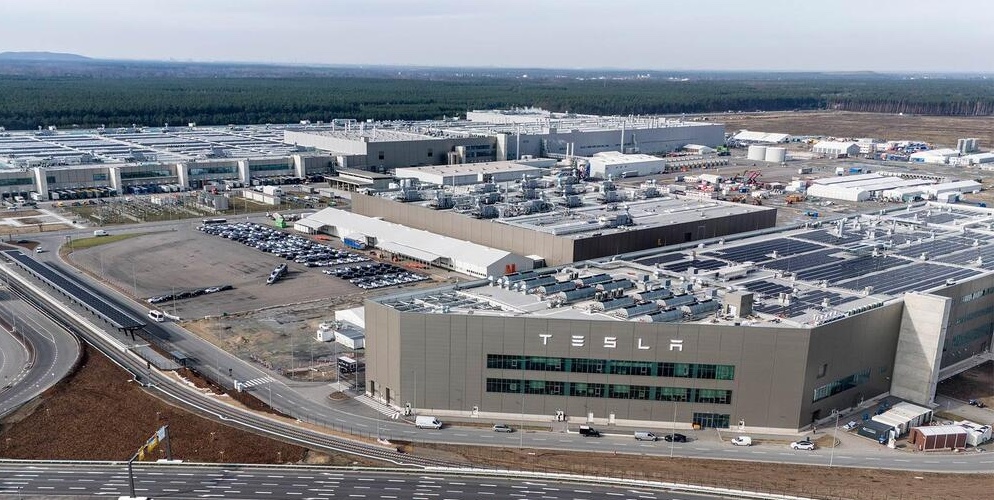Germany has consolidated its reputation as the European automotive hub and is advancing towards positioning itself as a leader in electromobility.
In this context, Stefan Di Bitonto, Deputy Director of Mechanical & Electronic Technologies at Germany Trade & Invest, assures Mobility Portal Europe that the country offers unique advantages for foreign businesses.
“It remains one of Europe’s most attractive investment destinations due to its solid industrial base, access to advanced technologies, skilled workforce, and government incentives for green technologies,” he states.

Which sectors does he recommend exploring?
The battery manufacturing industry tops the list of opportunities for investors.
Germany is betting on innovation in solid-state technology, strongly supported by European Union programmes aimed at green financing.
This focus, combined with specific incentives for research and development, places the country in a prominent position in the global race to improve energy storage.
The charging infrastructure also emerges as a fertile area for investment.
With growing demand for ultra-fast, high-capacity chargers, the German government has committed to expanding the network of public and private stations.
Additionally, the digital solutions and software sector offers potential.
Energy management technologies, such as vehicle-to-grid (V2G), along with the integration of renewable sources, are essential for modernising the electrical system.
In this context, software companies that develop advanced connectivity systems have significant growth potential, according to the expert.
Mobility solutions such as car-sharing models and electric vehicle fleet management represent an area of continuous innovation.
Finally, it’s worth mentioning autonomous and connected technology.
“Germany’s push toward integrating autonomous driving with eMobility offers opportunities in sensors, lidar, radar, cameras, Artificial Intelligence, and connectivity solutions,” he explains.
What regulatory challenges exist in the German market?
Di Bitonto highlights: “Foreign businesses must adapt to specific EU and German regulations, including compliance with the General Data Protection Regulation (GDPR) and cybersecurity regulations.”
These requirements not only impact daily operations but also long-term development strategies.
Other key challenges include obtaining permits for connection to the power grid and complying with sustainability standards, such as those established by the EU Battery Directive.
This mandates strict recycling and environmental sustainability standards, which can increase initial costs for investors.
Similarly, labour laws and local preferences often require a physical presence in Germany to operate successfully.
This context reinforces the need for thorough planning and specialist advice before starting operations.
Despite this, the expert assures: “Germany offers various incentives and financing programmes to attract foreign eMobility companies, significantly reducing investment costs.”
According to Di Bitonto, foreign companies conducting research and development in Germany can access grants covering up to 50% of eligible costs.
This includes additional support for collaborative projects and higher rates for small and medium-sized enterprises (SMEs).
“Programs like KMU-innovative and ZIM support innovation in various industries, and there are tax credits of up to 2.5 million euros annually,” he highlights.
The country also continues to offer direct subsidies for charging infrastructure and commercial electric vehicles, complemented by labour incentives designed to attract and train talent.
These factors reduce initial investment expenses and help accelerate market entry.
Which regions are advisable for investment?
Germany’s regional diversity offers a broad range of options for investors.
Regions such as Bavaria and North Rhine-Westphalia stand out for their technological infrastructure and skilled workforce.
Meanwhile, Brandenburg, home to Tesla’s gigafactory, has become a hub for battery manufacturing.
“Various regions stand out for their favourable conditions for foreign investment, driven by regional support policies, government incentives, and the presence of key industries,” explains Di Bitonto.
Moreover, the advanced logistics network and availability of land for large facilities make the country a competitive environment for significant manufacturing investments.
“All locations benefit from political and financial backing, with regional development programmes, tax incentives, R&D funding, and access to skilled labour as key attractions,” he states.
With all this, Di Bitonto advises foreign businesses to “understand the regulatory landscape, engage with local communities, and align with the country’s sustainability goals.”








